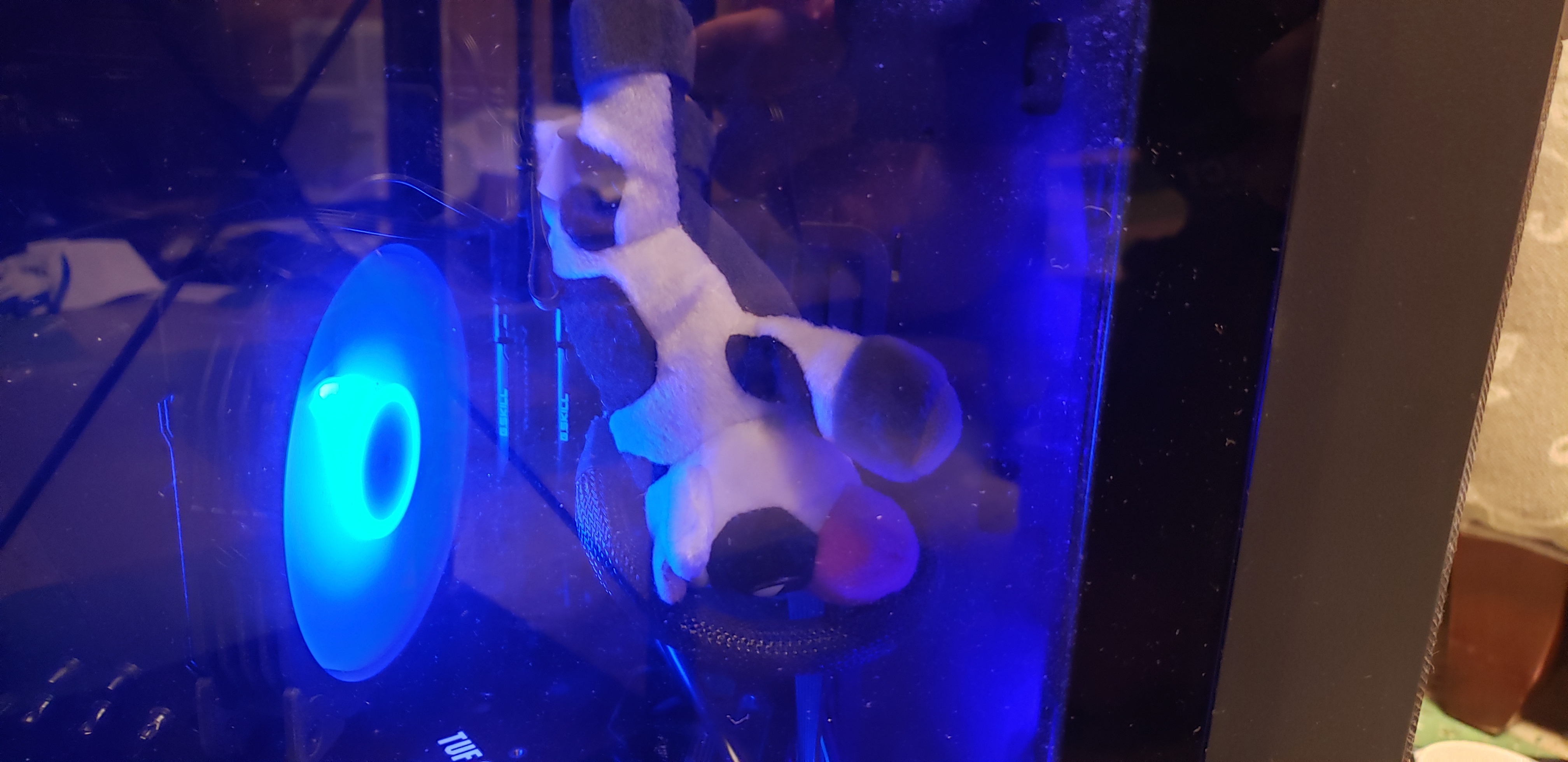This is aimed at students/ex-students that used Linux while studying in college.
I'm asking because I'll be starting college next year and I don't know how much Windows-dependency to expect (will probably be studying to become a psychologist, so no technical education).
I'm also curious about how well LibreOffice and Microsoft Office mesh, i.e. can you share and edit documents together with MOffice users if you use LibreOffice?
Any other things to keep in mind when solely using Linux for your studies? Was it ever frustrating for you to work on group projects with shared documents? Anything else? Give me your all.
LibreOffice has opened every DOC(X) the school has sent me, albeit imperfectly, and all assignments are turned in as PDFs, which I usually make using Markdown and LaTeX. I have had to use Office 365 for collaboration, but only about twice a year, and that runs very smoothly in Firefox. On one occasion I tried to collaborate with CryptPad, but it didn't work as well as I hoped.
Most computer labs at my uni run Windows 10, rarely 11, but a lot of the science labs run Linux. A surprising amount of the software required for classes has been open-source, too.
The most frustrating thing has been the lockdown browser used for some exams. My university library has computers I can borrow for exams, but yours might not, and they detect VMs, so you might have to dual boot for that.
Oh yeah, I didn't think of the lockdown browser. I'm in Sweden, so I should only hope our education has come so far that I'll be able to borrow a spare Windows computer.
If computer has a removable drive you could just get a second drive and run windows on that if you really need to for some reason
If my American university has a system in place for students that don't own Windows, I would not be surprised if yours has a better one :)
I've been using exclusively Linux since high school, and now I'm doing a PhD in math. It's always been pretty smooth. I used to have a separate Windows rig for gaming, but don't really need it anymore, now that Proton works very well with most games. (I don't really play AAA games, so that helps.)
Coming to the point, for academic stuff, I mostly needed to use a PDF reader (Zathura and qPdfView), LaTeX, and some computation and graphing software (mostly SageMath). I sometimes needed to use DOCX files, but LibreOffice works well for that. Most other software I need from time to time are usually Linux native.
Also, many universities provide access to O365. I've used it in some rare cases where I needed to provide input in some collaborative document. But in most cases, I was able to convince my friends/colleagues to use Google Docs instead.
Unless you do CAD, or some creative work, Linux should be perfect for your usecase.
I'm surprised you use Google. I would assume people on Linux are avoiding big tech as much as possible. I personally don't use a Google account so I just use the o365 school account to edit collab documents
I dislike both. But since Google Docs is free, it's easier to use everywhere and with all kinds of groups.
using google's office tools is going to be pretty generally acceptable for most people. depending on your studies, you might be expected to use windows software at some point. i would recommend dual booting. depending on your computing hardware, buying a relatively cheap 1 TB SSD from any retailer and installing windows on it is usually the best option. should simply be a matter of selecting the correct boot device from your system bios. for psychologists, my supposition would be that any proprietary software used, if any, would be windows exclusive.
Honestly I did look into dual booting some time ago, but I don't think (and this is just a guess) that I'll be that dependent on Windows for my studies, and it feels a bit icky to have a secondary OS that I'll barely use (just like me having Play Store on my GOS phone). :')
If you're ever forced to use windows for whatever reason, your college should have computers in a library or something that you could use. As far as office software compatibility goes, the office documents themselves are likely to show up with formatting errors if opened in another office suite, but there's no such issue if you export to PDF though, so I always did my work in LibreOffice and then turned in a PDF and there were never any issues. For group work, I always found it easier to just use one of the browser-based office suites for file compatibility or for working on the same document together.
Well, I'm a psychologist and my entire college time I used Linux. Most of the times me and my friends used Google Docs instead of MS Office
In psychologist school you'll be reading a lot, so you'll need pdf reader, but that is easy in Linux. Maybe, but this is a big maybe, you'll learn about statistics using a software, but we have Jamovi and JASP for that. If you're into R or Python, that's easier in Linux then Windows
If you really need to share documents with your friends using MS Office, LibreOffice may do the job for the content, but have in mind that if you're in charge of formatting the document, noone else could do it. Otherwise, if other person is in charge, you'll be better not try to format. Or just use Google Docs / Office 365 (online)
In my own experience, I had no issue using only Linux in my school time
Also, in my daily work as a psychologist, I have no issue with that as well
Just finished my Master's this year.
I belonged to the Department of Computer Science at a university in the UK so granted there's a lot of bias here:
I will point out a few observations, without going into much detail or reasoning:
- Microsoft's Office suite was a non-requirement. For collaboration, everyone was using Google's Office suite (Google Docs, Sheets) or Overleaf (Premium if we signed up with our university email).
- Around half (maybe more) were MacOS users, maybe 25-25% split between Linux and Windows.
- Lots of iPads, particularly in any Maths classes.
Anything else to keep in mind? Yes, that people are ignorant. Even in our CS department people used to actively avoid using Linux, a lot of people will buy Macbooks because of reasons I would attribute more to the demographics of CS students, i.e. primarily from Asian countries where Apple is seen as a economic symbol.
Be prepared for people to judge you (not saying they should, but that they likely will). If you want to avoid this judgement, get an Apple silicon Macbook Air or something. However, I commend you for going out of your way to learn and wanting to reduce your dependency on Windows. I think that learning to be comfortable with the machine will help you in the future, most likely indirectly.
Lastly, keep in mind that when we have discussions about privacy or Linux or not supporting big tech companies who we might not agree with (e.g. Microsoft, Google, Apple etc) it's never a binary problem. You might find that you will end up relying on teams for internal communication or that your university email is with outlook/office365.
Try and do your bit, but don't be too harsh on yourself. :)
Needless to say, if you're looking for a laptop that runs Linux well plenty of people will tell you to buy a used thinkpad (great from a value perspective), or if you'd prefer some of the new kidz stuff then a Tuxedo notebook.
Do not make the mistake of buying a notebook which doesn't have a reputation of good Linux support. I bought a HP notebook (can't quite remember the model number right now but can get back to you) and still no sound without manual kernel module patch :D
If you want to avoid this judgement, get an Apple silicon Macbook Air or something...
Or save a few bucks, buy whatever laptop in silver, cover the logo with a sticker, and use elementaryOS or theme your DE to be Mac-like.
(Great advice, btw)
If you want to avoid this judgement, get an Apple silicon Macbook Air or something...
Damn, me over here trying to flex my Chicago95-ass X201T to my classmates
Honestly, if you're sharing office files you're probably using office 365. This means everything is a web app first and therefore Linux compatible.
I tried using the desktop version of word on a Mac last week, and the latency was so bad on a shared document that I had to switch to the web app anyway.
Basically, if you just want to use Linux you'll be fine. If instead you don't want to use Microsoft, you'll probably have lots of problems.
Microsoft have been brutally effective in getting their tentacles into academic institutes, and you'll find that everything from email to logging into internal sites relies on an office 365 account.
Storytime!
As a physics major, daily driving Linux worked out pretty smoothly. The thing that saved me from trouble the most was making a weekly full system backup (I used Clonezilla and my file server). If anything was truly incompatible, I took care of it on the school's computers.
In my second semester, I began dual-booting on my X201 Tablet and desktop, eventually booting into Windows infrequently enough that I made my X201T Linux-only by the end of my second year.
Around that point, I began using LUKS full-disk encryption on my machines and USB drives. I highly recommend if you don't already, even if just for peace of mind. I have strong ideas about the way things ought to look and work, so being able to customize Linux to my heart's content (with Chicago95 ofc) made doing work on my computer a bit more enjoyable.
Documents
- MS Office: Libreoffice worked 95% of the time. For the other 5%, I used the school computers or my Windows VM.
- Google Docs and GMail: accessed through Chromium, which I only used to access Google and sites linked to my school's SSO system.
- We did a lot of writing in Latex, though it might be a physics thing
- A lot of other small stuff I'm starting to forget, but if I don't mention it, I probably did it through the browser.
Lab
- MATLAB: GNU Octave sufficed 75% of the time, often needing just slight changes to the code. Otherwise I used the lab computers or my desktop with actual MATLAB.
- Proprietary dana analysis software: One had a .deb package for oldoldoldstable so I set up a VM just for that. Otherwise, lab computers it was.
- Lab computers running old and new versions of Windows were available to us, so if there was anything computationally intensive or requiring proprietary software, I would just take care of it in the lab.
Social
- Slack, Discord, Facebook, Instagram, Whatsapp: browser client, which I would check on a schedule
Tools
- VPN: NetworkManager, though it was a bit janky. I think it's a lot better nowadays.
- Printing: We had a web print portal to upload docs and pdfs to a printer of our choice.
Graphics
- Mostly prepared my posters, etc in a mix of Libreoffice Draw, GIMP, and Inkscape
- Adobe: Had to use it on one occasion. Used the library computers where it was installed for everyone to use.
- Digital notes: I would use Xournal on my X201 Tablet whenever I forgot to bring my notebook or refill my fountain pen. Managed to impress a few of my iPad-toting classmates when I whipped out the pen and the display around on what they believed to be an ancient clunker.
As for the desktop, I had purchased it with gaming in mind, but it eventually became my SMB file share, media server, and RDP session host so I could make any library desktop like my own. Each thing in its own VM, of course. By the end of it, I was one of about 3 students running a server over the campus LAN. Even in the comp sci department, surprisingly few students used Linux.
Linux also met all of my computing needs while studying abroad in Germany. For five whole months, I had not used Windows once. Though my SSD did give out on me once, a backup saved the day.
A friend once did need to use a rather invasive remote proctoring tool. Highly recommend a separate laptop or at least a fresh SSD for this case.
Mobile privacy, if it's relevant
- I was in the fortunate position where none of my classes or jobs required proprietary mobile apps
- Friends used Venmo or whatever else, I paid back in cash
- SMS and emails sufficed for regular communication
Overall, it was smooth sailing using Linux throughout my college years and no incompatibilities that couldn't be solved in the library or a computer lab.
edit: i used debian btw
2001-2005. My computer lab in the school of math and natural sciences (including computer science), had windows 2000 (best windows of all time), Apple Power PCs, and all dual booted linux. All we used for comp sci was linux. Yellowdog on the Power PCs. Learned to program/develop in C++ and Java, mostly used e-macs, goal was to never lift hands from the keyboard or use the mouse, keeps you in the zone. Used Gnome as the desk top environment back then.
So pretty good :)
Today I use linux mint with cinamon for day to day computing, been using it for about 10 years now without issue.
I went back to college for a professional program, and used linux mint in 2022, it worked out just fine. As far as office software, I used word 365 online through the university web portal.
I think word sucks a lot and 2003 and 2007 are the best versions and little improvement since then (improvement is efficiency and easy of creating an end-product), but I'm not willing to re-learn how to master Libre Office, I just can't be bothered. So no input on that.
I was doing computer science and we were asked or recommended to use the following pieces of software:
- Citrix Workspace App, which has a native Linux version.
- Docker, which has a native Linux version.
- Google Chrome, which has a native Linux version, but I chose to use Firefox anyway.
- Laragon, which doesn't have a Linux version, so I just used XAMPP instead.
- Microsoft Excel, which doesn't have a Linux version. The school offered an Office 365 license, so I could've used the web version, but I chose to use LibreOffice Calc instead.
- MySQL Workbench, which has a native Linux version.
- Open ModelSphere, which has a native Linux version.
- Packet Tracer, which has a native Linux version.
- Slack, which has a native Linux version.
- VirtualBox, which has a native Linux version.
Didn't really have any problems using Linux. Might be different if you need other software, tho.
I used linux all through the years I should have been in college, but was instead a hopeless drug addict. I regret nothing!!!
...apart from the drugs....
...and not going to college...
My freshman year I had a windows VM, only for WeChat and MS Teams, but by 2nd year WeChat got Linux support and MS Teams can now run in the browser, so I deleted the VM halfway through 2nd year. Zoom can also run in the browser.
Also a good idea to make sure your microphone and camera works.
And don't update if there's a deadline coming up soon since it might break.
None of my professors required anything to be submitted as
.docx. Every single general education class required PDFs for submissions, and programming classes were usually submitted by pushing to code to a Git repository. Group projects were all done in Google Drive which runs in the browser, otherwise latex usually worked (one prof even required latex). I never used LibreOffice, but I'm pretty sure it should be fine for PDFs.Psychology might require a bunch of proprietary statistical analysis software that probably won't support Linux. I would say a windows VM is best for that. Although R is fine on Linux. I was in computer science so none of my classes required proprietary software. In total over every single class I think only C, C++, Haskell, and Python interpreters/compilers were needed which are all free software. In some of my classes professors said they would refuse to help anyone on Windows if they weren't using an Ubuntu VM. One even said he would subtract points if anyone asked a question about windows. One crazy prof said he would fail you from the class if he saw you developing in Windows instead of the VM. Also any classes that require Docker are going to be way easier on Linux. Some of my friends were electrical engineers and they had to use some big proprietary IDE's for flashing binaries to micro controllers which didn't support Linux, but they were using Windows anyways. Also any CAD software almost certainly won't work, a VM is needed for that.
If you do use a windows VM or dual boot or whatever, make sure to pirate Windows 10 LTSC since it has the least default applications installed and will run faster.
The people I know in my program (undergrad History) use their computers for little more than Google Chrome (specifically Google’s Office suite), a PDF reader (sometimes also Google Chrome), sometimes Zotero, and sometimes MS Word. We get a lot of Mac’s around here, so one can imagine Microsoft products are not highly relied upon, generally speaking.
Everything’s through the browser nowadays, so I’d say just pick a stable distro, install 2 or three browsers in case something doesn’t work (like Google Docs with Firefox in my experience…), and submit everything as PDF.
Can’t speak much to LibreOffice as I write my papers in Typst (and before that in LaTeX, which got me brownie points with some of the older professors), which I find much faster, easier, and more flexible than WYSIWYG word processors.
I'm also curious about how well LibreOffice and Microsoft Office mesh, i.e. can you share and edit documents together with MOffice users if you use LibreOffice?
You can. But if the sender is the type to use linebreaks for spacing and textbox for grouping, be prepared that the layout may explode after saving and reopening the .docx in LO.
But that's the formats (MS OOXML) fault, consists mostly of proprietary extensions, no such issues with .odt (ODF).I had no problem, but my classmates hated me because everytime a professor gave us an assignment to be done in excel I asked that if it was ok to use livreoffice because I use Linux and they always changed it to be done on R or Python.
For what is worth, I've had better luck on MSOffice integration with onlyoffice, but ymmv
I've actually not researched that much about OnlyOffice but I'll definitely be sure to do that.
+1 on OnlyOffice, it has 1:1 formatting compatibility with Microsoft Office. Unlike LibreOffice, it doesn't have to translate documents between odt and docx in the background.
In the same vein, OnlyOffice has poor compatibility with odt files etc.
I've definitely notice weirdness with odt files, but truth be told I damn never run into those, everything is xlsx, docx, etc as I'm interfacing with companies that are firmly MS, but they're also none the wiser usually. Every now and again there'll be a formatting issue, especially with Excel, but it isn't too common thankfully.








